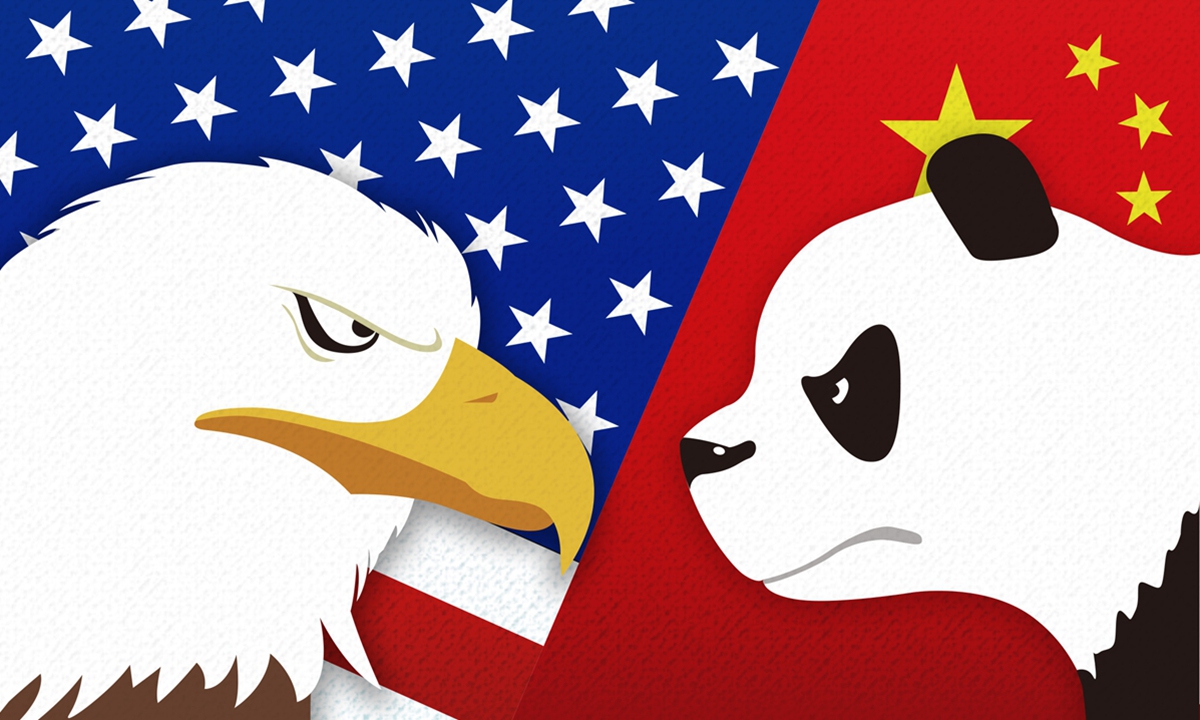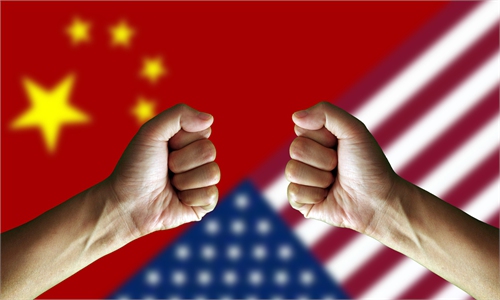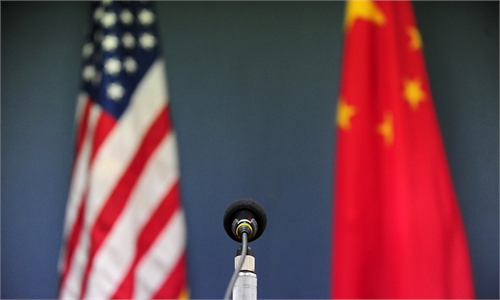Washington should learn a lesson from China’s reciprocal sanctions: Global Times editorial

China US Illustration: Liu Rui
The Ministry of Foreign Affairs of China announced a new list of sanctions against US personnel and entity on Friday evening, as a reciprocal countermeasure to the US' erroneous practice of imposing sanctions on seven deputy directors of the Liaison Office of the Central People's Government in HKSAR.
China's latest sanctions list include former US secretary of commerce Wilbur Louis Ross, chairman of US-China Economic and Security Review Commission Carolyn Bartholomew, former staff director of Congressional-Executive Commission on China (CECC) Jonathan Stivers, DoYun Kim at National Democratic Institute for International Affairs, senior program manager of the International Republican Institute (IRI) Adam Joseph King, China director at Human Rights Watch Sophie Richardson, and the Hong Kong Democratic Council.
China's counter-sanctions didn't come as a surprise. It shows that China will resolutely retaliate against any US sanctions imposed on it. The US shouldn't think it can unilaterally pressure China without bearing any consequences. Its arrogance should be replaced by a careful calculation of its own losses.
The US over the past two years has sanctioned several batches of Chinese personnel. China has taken reciprocal countermeasures every time, imposing sanctions on US personnel who are hostile toward China and caused destructive effects. The Chinese society detests those anti-China figures, and it's fair to say the Chinese government's actions are a way for the Chinese public to vent out their anger.
Many high-ranking officials who were under the Trump administration are on the sanctioned list. They have become the most un-favored political elites under the US "revolving door." Normally, when high-level officials leave office, the most ideal job for them is to work as executives in multinational companies. However, most American multinational companies have close businesses with China. If they accept those on China's blacklist, it will mean their Chinese businesses will see big troubles. China's sanctions terms generally restrict the sanctioned and their affiliates from dealing with and doing business with China. The measure is very powerful.
Senior Trump administration officials have rarely found ideal jobs in multinational companies. Former secretary of state Mike Pompeo went to the Hudson Institute, former national security advisor Robert O'Brien joined the Washington, DC-based Global Taiwan Institute, and former deputy national security advisor Matthew Pottinger also joined a think tank. Former White House trade Advisor Peter Navarro often accepts interviews. Apparently he has a lot of time on his hands.
Although some people speculate that Pompeo joined the Hudson to pave the way to run for president in the future, it's not that easy to win a presidential election. Many former US officials joined think tanks. One of the reasons why companies ignored them is that China's sanctions have reduced their value.
China is a booming market and the world's largest trading country. If China closed its door against or targeted one person, his career space will certainly be compressed. In the long run, for certain individuals, China's sanctions will gradually have a far more devastating effect than the US sanctions will have on the Chinese.
One reason is that Chinese officials are becoming more cautious about developing links with the US. Due to institutional restrictions, they cannot have personal economic exchanges with the US. Families of Chinese officials are prohibited from doing business once they reach a certain level, let alone doing business in the US. In contrast, most US political figures have direct or indirect economic exchanges with China. If the possibility of being sanctioned by China increases while they serve political terms, it will mean rich Americans will face a special risk to participate in politics.
In recent years, more and more Americans make money from dealing with China. Some Americans who take a vicious attitude toward China are at the same time using their links with China to advertise themselves. Cutting off such links will weaken their career advantages and put them at risk of being marginalized.
China used to be quite restrained. It was committed to resolving frictions with the US and seldom resorted to sanctions. Therefore, it has accumulated resources that can be used to sanction the US, especially a small number of Americans. We advise the US not to be too arrogant. Time has changed. The sanction tools at its disposal are decreasing while those in China's hands are increasing. The pattern of China-US competition is changing day by day.
China doesn't provoke trouble. So far, we have never proactively launched sanctions against the US. This shows China's growing strength hasn't made the country arrogant. But the US has forced us to react and take heavy countermeasures. China emphasizes on negotiations, but when necessary we will take actions. The US wants to rely on sanctions to crush China, to reshape US' advantages and to revitalize the country. But it's wishful thinking.


